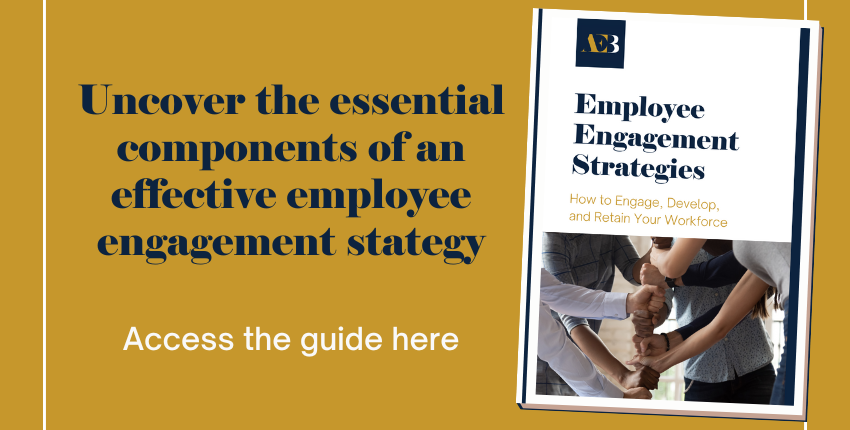There are few things as disappointing for hiring managers and HR professionals as having their perfect-fit hire back out of an offer after initially accepting it. It may leave them wondering whether a competitor swooped in to steal their brilliant find or if it was the buyer’s remorse that made the individual second-guess their decision.
Unfortunately, it is not uncommon for candidates to feel a tinge of doubt after leaving their former position for a new one. Once the excitement over acing the interviews wears off, many begin to wonder if they made the right choice by saying yes. If not addressed promptly, this feeling of uncertainty can turn their enthusiasm and eagerness into anxiety and dread, making them question if they will be able to adapt to the new role or fit in with the company culture at all.
Though overwhelming, this thought process is often spurred by a fear of change. While there is not much that a hiring manager can do to bring back the new hire who has already walked out, there are several steps they can take to minimize new job remorse among prospective candidates in the future.
However, we must first take a closer look at buyer’s remorse and how it may impact career professionals.
What Is Buyer’s Remorse?
Buyer’s remorse is described as the sense of regret one may experience after making a purchase.
Typically, this remorse is associated with purchasing an expensive item, such as a house or a car. The buyer may fear that they have made the wrong choice or feel guilt over indulging in a purchase outside their financial budget boundaries.
Interestingly, these feelings are not limited to our purchases; they also apply to our decisions. A person may feel overwhelmed with self-doubt and regret making what they perceive to be a hasty decision that could alter the trajectory of their life – such as accepting an executive-level position at a well-known organization.
Top Reasons Candidates May Regret Accepting a Job Offer
Here are some of the main reasons a candidate may feel new job remorse after a successful hiring process.
Lack of information
Individuals may second-guess their decision to join a new company if they believe they don’t have sufficient information about its operations, environment, and culture. They may also have unclear expectations of the role or what is expected of them during their first year, worsening their anxiety and resulting in buyer’s remorse.
Not having enough time to decide
In some situations, a candidate may feel like the hiring manager or the HR professional did not give them enough time to think the offer through – even if that wasn’t the case. Nevertheless, this feeling could continue to fester and eventually result in a perfect-fit hire sending out a rejection email right before their scheduled orientation.
Stepping out of the comfort zone
Many people decide to look for new opportunities once they begin feeling too comfortable in their role. They are eager to prove that they are perfectly capable of taking on new challenges and thriving under any circumstances. However, once they have showcased their potential to achieve great things and snagged a brilliant offer, they may begin wondering if they would be able to keep up with the role’s demands.
Getting a better offer
The tightening pool of qualified candidates has resulted in a competitive job market, which means a talented individual with the right qualifications and expertise may be approached by several hiring companies, even if they have already accepted an offer.
Receiving a better offer from another company may make new hires reassess their priorities and wonder if they are on the right career path.
Identifying the Signs of New Job Remorse
More often than not, hiring managers and HR professionals tend to overlook or ignore the red flags that their dream candidate is planning to turn down their acceptance.
Here are the warning signs that your new hire is already looking for a way out and the confirmation signals you want to see instead.
Reluctance to move things forward
The hiring process for top-level positions usually includes several rounds of interviews, which allow the recruiters or hiring managers to learn more about the potential candidate. It also provides the interviewee with an opportunity to glean more insight into the hiring company.
If an individual is still excited about the open position after acing all their interviews, they likely won’t spend much time deliberating over the offer letter once they receive it. However, if they appear reluctant to accept the offer within a specified period or start making excuses for non-action, it could be a sign that they are no longer excited about the prospect of filling that position.
This delay is usually a product of buyer’s remorse, which can begin to set in at any point in time during the talent acquisition process.
Lack of communication
One of the most common signs of new job remorse is a lack of communication. If a new hire is taking hours or days to respond to your calls and emails after accepting the offer, it could be a bad sign – particularly if this person was quick to reply to your texts and other forms of correspondence during the hiring process.
Sometimes, last-minute travel plans or family emergencies may make it difficult for a newly hired employee to communicate with the hiring manager. However, if this situation persists for days or the candidate continues sending non-committal responses to their tentative date of joining, you may have already lost them.
Looking for excuses
Qualified candidates with the perfect aptitude and impressive years of industry experience under their belts are almost always clear about their professional needs and career aspirations. Moreover, these individuals share their concerns about the new position quite early in the hiring process. They also go a step above to seek clarification about the role’s responsibilities to ensure they are indeed making the right choice.
Nonetheless, if a candidate who has extensively discussed their career goals during the initial interviews suddenly appears to have new needs and demands, it may be a sign that they are looking for an excuse to walk away.
Identifying these problems at an early stage can enable hiring managers to stop the departure of a potentially valuable resource.
How to Prevent Buyer’s Remorse Among Candidates
Let’s look at tips to help candidates avoid buyer’s remorse after accepting a new offer.
Following a structured hiring process
A systematic hiring process allows organizations to fill their open positions efficiently and effectively. Working with an executive search firm like AEBetancourt can further empower employers to achieve the best possible outcome while reducing their turnover rate.
A structured hiring process is usually divided into two main steps: pre-process and actual hiring.
The objective of the pre-process steps is to establish the parameters of the hiring process by determining the key decision-makers and outlining a process that promises to yield quality results. Moreover, HR professionals or recruiters must take every measure to follow the order of steps defined in the structured approach. The effective completion of these steps will allow the recruiter to begin their search for the ideal candidate.
Meanwhile, the hiring process involves sourcing, recruiting, and evaluating candidates prior to extending an official offer. In addition, discussing successful onboarding strategies is an imperative component of a systematic process. It is also worth mentioning that experienced search firms consider interviewing candidates a process all its own, which means it requires a structured approach as well.
Ensuring transparency on all fronts
To attract quality talent and help them avoid buyer’s remorse later down the line, it is imperative for hiring companies to ensure transparency while defining their culture, goals, and opportunities for growth from the very first meeting. Open communication from inclusive and empathic leadership creates credibility and builds trust between all parties involved in the hiring process.
The transparency in business for prospective candidates may include well-defined requirements, responsibilities, salary range, and other benefits associated with the open position. On the other hand, new hires may require adequate access to information and training, clarity around their deliverables, information about the onboarding and subsequent transition process, and more.
Developing an Employee Value Proposition
An employee value proposition, more commonly referred to as EVP, is perhaps one of the most important parts of the hiring process. It tells the candidate why they should consider moving to your company and how it would help them achieve their career goals. It also allows employers to retain talent by acting as a key driver of talent acquisition.
An EVP is not the same as the mission statement of the hiring company, nor is it a list of perks that encourage qualified individuals to apply for the open position. Instead, it combines all the things that make an organization unique and encompasses the main reasons a career professional would be proud to become a part of its vision.
Hiring companies with meticulously crafted EVPs usually observe higher retention rates among their best employees. Thus, a strong EVP should be incorporated into conversations with candidates, shared again as part of an official offer letter, and reinforced during the onboarding process.
How to Encourage Positive Feelings Post Job Acceptance
Here are a few things hiring companies can do to encourage their perfect-fit hires to not only show up on their first day but come back on the second and third as well.
-
Ensuring regular communication with the candidate in the days leading up to their date of joining
-
Sharing relevant information about the company or role to keep them engaged and motivated.
-
Introducing them to their managers and fellow team members ahead of their first day at work.
-
Asking them to fill out the necessary pre-employment documents beforehand.
-
Sending them company gift bags or swag packages to ensure they remain excited.
-
Inviting the candidate to company events before their first day to help them connect with their new colleagues.
Hiring companies must also invest in employee development programs and take concrete steps to boost team morale to minimize buyer’s remorse among new hires. Working with an experienced recruitment firm can also help the hiring managers and HR professionals reduce the chances of candidates backing out at the last minute.
Meanwhile, if you are interested in boosting employee engagement in your organization, don’t forget to check out our comprehensive guide to Employee Engagement Strategies.


.png)






